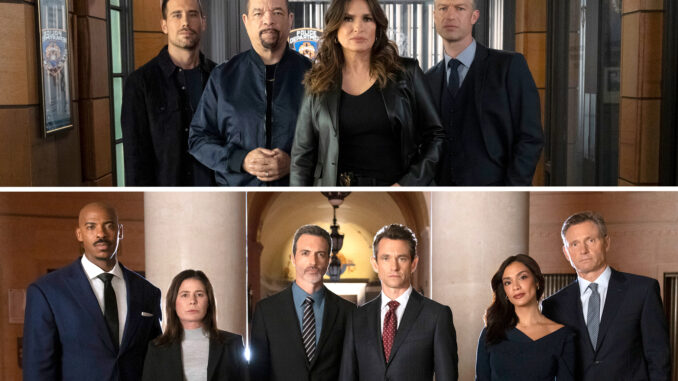
The Unseen Heartbeat: When SVU Honored its Own
For over two decades, "Law & Order: Special Victims Unit" has carved out a unique space in the television landscape. Its dimly lit interrogation rooms, its unflinching gaze at humanity's darkest corners, and its enduring dedication to the victims of crime have made it a cultural touchstone. Viewers tune in week after week, drawn by the familiar faces of Olivia Benson and her squad, the intricate dance of justice, and the cathartic resolution, however fleeting. Yet, behind the grit and the legal jargon, behind the carefully constructed narratives of good and evil, lies another story – one of the people who truly bring this world to life, the unsung heroes of the crew.
Every long-running show is more than a production; it's a family. Years, even decades, spent together on set, through grueling hours, personal milestones, and shared triumphs, forge bonds deeper than mere professional acquaintance. The actors, the writers, the directors are the public face, but the crew—the gaffers, the grips, the sound mixers, the set designers, the makeup artists—are the very heartbeat, the invisible architecture upon which every frame is built. They are the quiet hum of a well-oiled machine, the steady hands that adjust lights just so, the meticulous ears that catch every whisper, the dedicated eyes that ensure continuity.
When tragedy strikes this off-screen family, the ripple effect is profound. The news that a beloved crew member, a constant presence, a source of camaraderie and quiet competence, had passed away, must have sent a collective gasp through the SVU set. This wasn't just a colleague; this was a cornerstone, a thread woven deeply into the fabric of their daily lives. The immediate grief, the hollow ache of absence, would have been palpable. How do you mourn someone who was integral to your creative universe but whose name might never appear in a prominent headline? How do you say goodbye when the show, like life, must go on?
The answer, for the cast and creators of SVU, came in a powerful, poignant, and unprecedented way: they honored their fallen comrade within the very world they helped to create. The decision to weave a tribute into an actual episode was not merely a gesture of respect; it was an act of profound love and shared grief. It spoke to the deep understanding that the show’s essence wasn’t just its scripts or its stars, but the collective spirit of everyone who contributed to its existence.
Imagine the atmosphere on set during the filming of this particular episode. Every line delivered, every camera angle chosen, every moment of silence would have been imbued with an added layer of meaning, a somber resonance. The actors, masters of embodying emotion, would not have had to reach far to tap into genuine sorrow. Mariska Hargitay, as Olivia Benson, often the emotional anchor of the series, would have carried the weight of real loss in her eyes, blurring the lines between character and performer. The subtle nods within the narrative, perhaps a character remembering a shared laugh or a quiet moment, would have felt intensely personal to those in the know, a quiet conversation between the show and its lost member.
For the audience, this unique tribute transcended typical television. While the specifics of the crew member's identity might have remained largely in the background, the emotional weight of the episode was unmistakable. A scene might linger a little longer, a line might be delivered with an unusual catch in the voice, a character might express a sentiment of loss that resonated with a rare authenticity. And then, at the episode’s close, the dedication card – a simple, stark acknowledgment of a name, a life, a contribution – would have landed with the force of a gut punch, transforming entertainment into a shared moment of humanity.
This wasn't just an episode of "Law & Order: SVU"; it was a eulogy whispered into millions of homes. It was a powerful reminder that behind every illusion, every dramatic turn, there are real people with real lives, real connections, and real heartbreaks. It highlighted the often-invisible labor that underpins the magic of television, elevating the "crew" from a faceless collective to individuals whose absence leaves an irreplaceable void.
In an industry often perceived as cold and driven by profit, the SVU cast's tribute was a beacon of warmth and profound empathy. It illustrated the powerful, often unacknowledged, bonds that form when people dedicate their lives to a shared creative endeavor. It showed that the family forged on set is as real, as vital, and as prone to grief as any other. And in doing so, it transformed a routine episode into a deeply moving testament to the unseen heartbeat of television, a tribute that resonated far beyond the screen, reminding us all of the enduring power of remembrance and the quiet heroism of those who work in the shadows.
